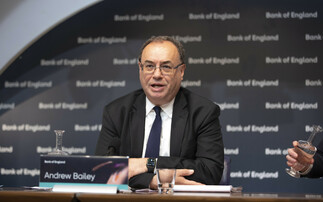Martyn Jones explains how companies can help people achieve a better lifestyle through healthier eating and physical activity, while also potentially benefitting financially.
The consumption of calorie-dense food and lower levels of physical activity have led to a global obesity epidemic, tripling since 1975 and set to rise further still. The World Health Organisation (WHO), for example, projects that by 2030 more than one billion adults around the world will be obese.
People are increasingly aware that the food we consume needs to better fit our lifestyles, with more natural and healthy characteristics. Legislation reflects a more proactive approach from governments as well, with sugar taxes being implemented across the globe.
The importance of diet and nutrition is highlighted by the United Nation's Sustainable Development Goal (SDG) 3, which is aiming to reduce premature mortality from non-communicable diseases, and, therefore, we believe the theme of Healthier Eating represents a significant investment opportunity.
One of our key long-term holdings is Irish-based food technology company Kerry Group. Consumers are demanding more from their food, wanting healthier and more natural ingredients while still retaining an appealing taste and texture. It can be difficult to achieve these competing characteristics and food manufacturers and hospitality companies come to Kerry for its expertise in ingredients and flavourings.
Kerry enables what it calls the ‘The Three Rs': reduce, remove and replace. For example, this includes reducing calories, removing artificial chemicals and replacing them with natural alternatives. We also like Kerry because it is managed for the long term and consistently invests in research and development to maintain leadership in the food technology space.
Physical activity is equally important in addressing the obesity epidemic. Inactivity significantly increases health risk factors such as high blood pressure and raised blood sugar, and is linked to Type 2 diabetes, a number of cancers and heart disease.
Again, governments and consumers are taking action, with 80% of WHO members having physical activity policies, funding in place and increasing numbers of their populations engaging in structured physical exercise including sports and going to the gym.
One of our holdings in the sector is The Gym Group. The company was set up after market analysis found people on lower incomes were not being served by the gym industry in the UK. Many could not afford membership fees ranging from £40 to £100 per month, with a year-long inflexible contract the norm.
The Gym Group started in 2008 at the height of the financial crisis, disrupting the market with a low-cost business model that offers excellent facilities, free classes, 24-hour access and short-term contracts, all at a cost typically under £20 per month. The company has grown its number of sites and members rapidly and is generating impressive returns on capital with its low-cost model.
Kerry and The Gym Group are two examples of how companies can help people achieve a healthier lifestyle, while also potentially benefiting financially.
Further reading
- To learn more about sustainable investment and Liontrust's offering: http://www.liontrust.co.uk/sustainable
- Investing for tomorrow, today: http://www.liontrust.co.uk/what-we-think/blogs/investing-for-tomorrow-today
- The investment case for "doing good" http://www.liontrust.co.uk/what-we-think/blogs/the-investment-case-for-doing-good
- Road to prosperity http://www.liontrust.co.uk/what-we-think/blogs/road-to-prosperity
- The investment opportunity in ‘Fossil Fuel Free' http://www.liontrust.co.uk/what-we-think/blogs/the-investment-opportunity-in-fossil-fuel-free
Important information
Issued by Liontrust Fund Partners LLP (2 Savoy Court, London WC2R 0EZ), authorised and regulated in the UK by the Financial Conduct Authority (FRN 518165) to undertake regulated investment business.
• Past performance is not a guide to future performance. • Do remember that the value of an investment and the income from it can fall as well as rise and you may not get back the amount originally invested. • The majority of the Liontrust Sustainable Future Funds have holdings which are denominated in currencies other than Sterling and may be affected by movements in exchange rates. Some of these funds invest in emerging markets which may involve a higher element of risk due to less well regulated markets and political and economic instability. Consequently the value of an investment may rise or fall in line with the exchange rates. Liontrust UK Ethical Fund, Liontrust SF European Growth Fund and Liontrust SF UK Growth Fund invest geographically in a narrow range and has a concentrated portfolio of securities, there is an increased risk of volatility which may result in frequent rises and falls in the Fund's share price. • Liontrust SF Managed Fund, Liontrust SF Corporate Bond Fund, Liontrust SF Cautious Managed Fund, Liontrust SF Defensive Managed Fund and Liontrust Monthly Income Bond Fund invest in bonds and other fixed-interest securities - fluctuations in interest rates are likely to affect the value of these financial instruments. • If long-term interest rates rise, the value of your shares is likely to fall. If you need to access your money quickly it is possible that, in difficult market conditions, it could be hard to sell holdings in corporate bond funds. This is because there is low trading activity in the markets for many of the bonds held by these funds. Mentioned above five funds can also invest in derivatives. Derivatives are used to protect against currencies, credit and interests rates move or for investment purposes. • There is a risk that losses could be made on derivative positions or that the counterparties could fail to complete on transactions.
• The information and opinions provided should not be construed as advice for investment in any product or security mentioned. • Always research your own investments and consult with a regulated investment adviser before investing.











